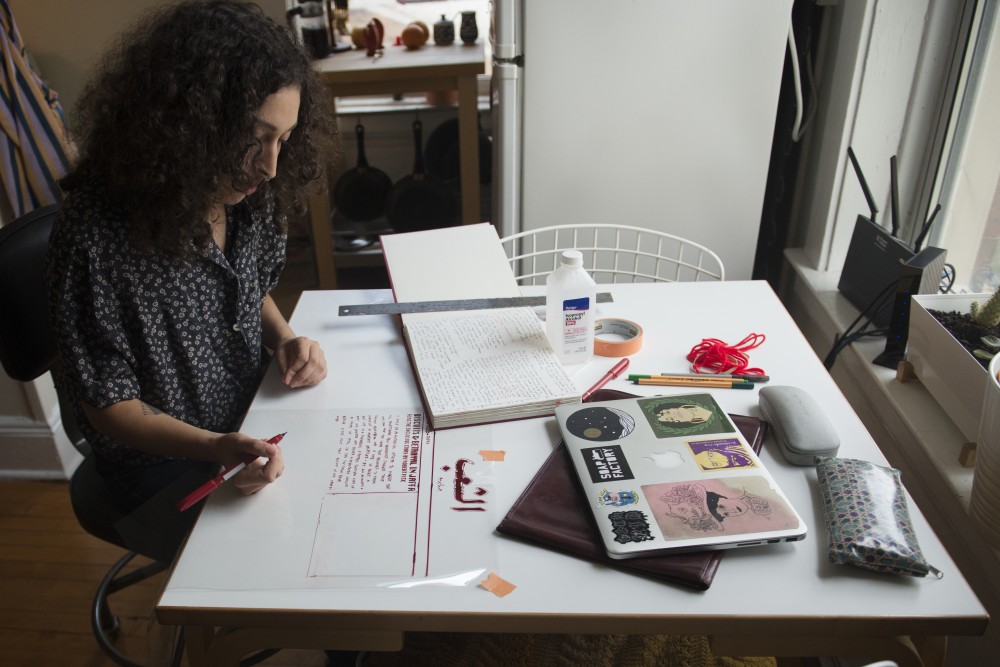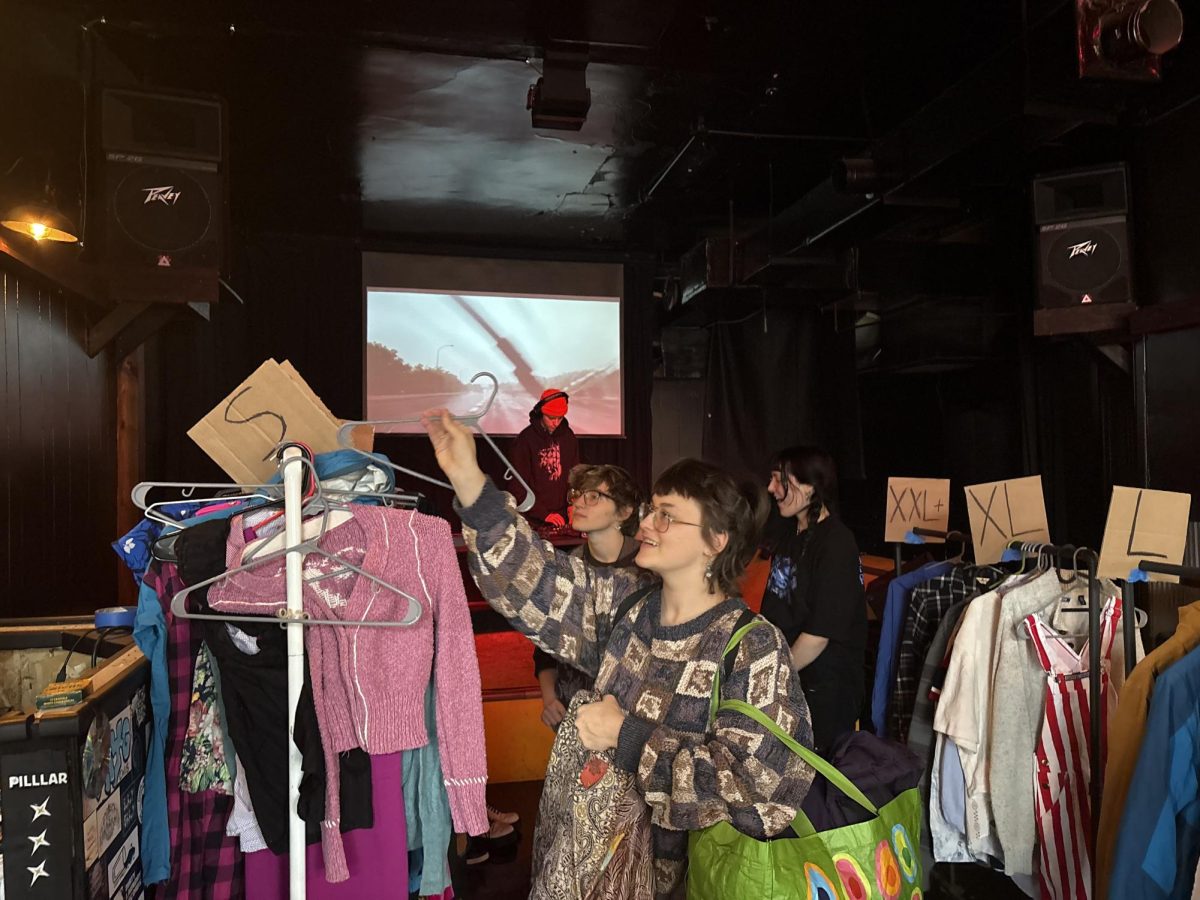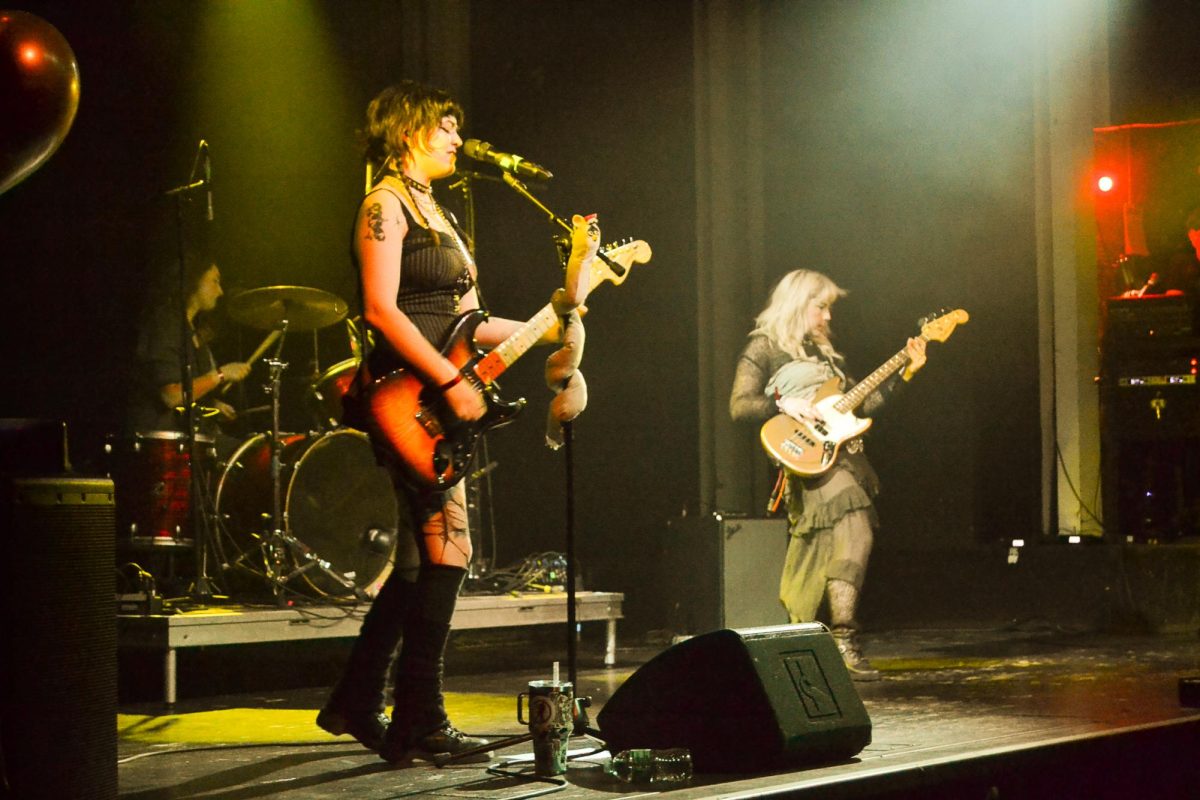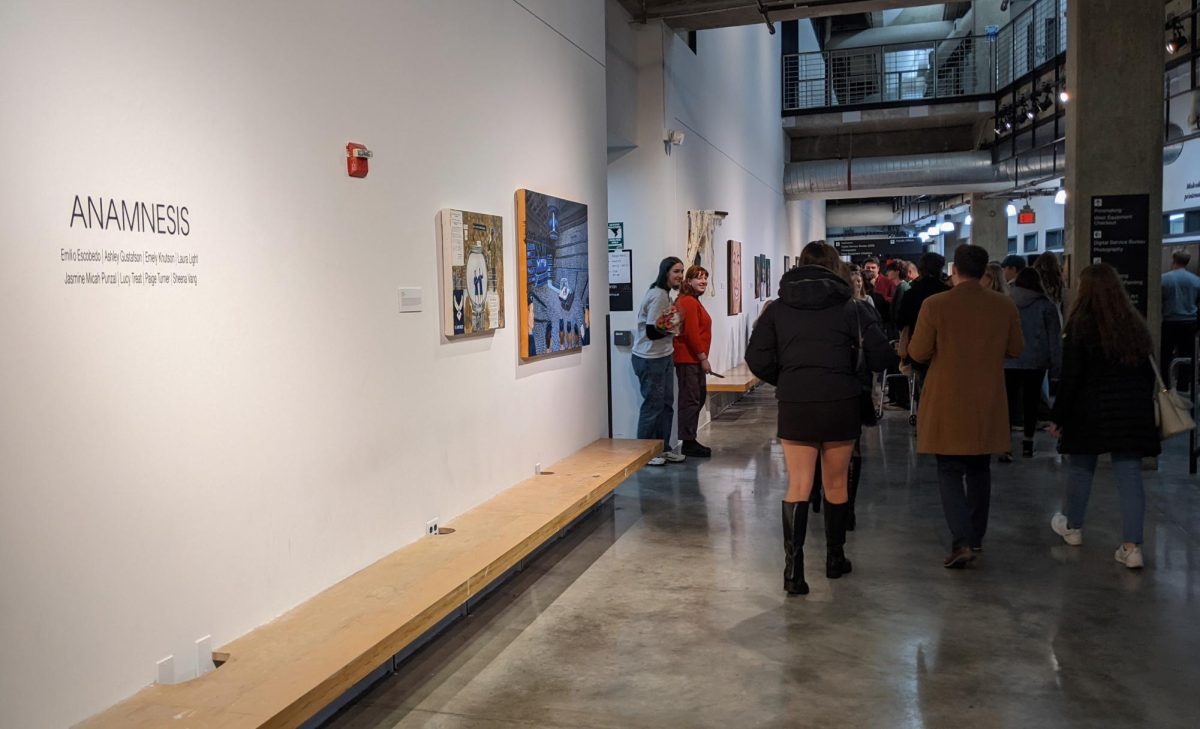Lamia Abukhadra is many things: smart, savvy, creative and politically aware. She is one of few Palestinian-American artists in Minneapolis — something that gives her pride and has helped shape her identity.
Abukhadra’s thought-provoking art explores her family history and dissects structures of colonialism that eventually forced her family out of Palestine.
Most of her family left the country in 1948, when much of their property was either destroyed or taken in the Arab-Israeli War.
After the war, Palestinian land officially became part of the Israeli state. Many Palestinians refer to this area as Palestine, including Abukhadra.
Her family was prominent enough to be recorded in books and other documents. Through research and sheer tenacity, she’s been able to trace her family’s history through generations.
It was only once she got to college that Abukhadra truly began to explore what her Palestinian identity meant to her.
“My identity is political because being Palestinian and identifying with that in any way is a political act,” Abukhadra said.

“There are large groups of people who either think that I don’t exist or should not exist … or they’ve politicized my identity by saying that people who look like me and who are from the same place as me are terrorists.”
Growing up in Minneapolis, it took Abukhadra years to unpack this history. In middle school and high school, she found there was an absence of Arab-American peers to relate to. Art became a guiding force, allowing Abukhadra to explore her identity. She graduated with honors from the University of Minnesota this spring.
“Lamia’s work has such clear focus and purpose in the stories she’s telling,” said Christina Schmid, Abukhadra’s former art professor at the University.
During her first semester, the artist took a beginning printmaking class with professor Edie Overturf.
“I thought I was going to be a lawyer until printmaking came into my life,” Abukhadra said.
Overturf realized Abukhadra’s potential immediately.
“I had Lamia as a student her freshman year, and I was already impressed by her ability to come up with creative solutions to prompts and parameters,” Overturf said.
Abukhadra soon became involved with Bohemian Press, the University’s student-led printmaking organization.
“For an undergraduate to have such unique life experience and be able to critically understand and express it … you know, she was just a shining star,” said professor Jenny Schmid, who first had Abukhadra as a student in her Zines, Comics and Books class.
In 2017, Abukhadra was one of the forces behind a project at the Soap Factory called “Here and There.” In the wake of President Donald Trump’s “Muslim ban,” Abukhadra and her friend Leila Awadallah, a fellow Palestinian student artist, built a 10-foot border wall in the Prospect Park Community Garden.
With the help of artists and community members, they painted the wall and then tore it down. It was painted to read “Death to Facism” before it was demolished.
“We had sledgehammers and hammers … people brought their own stuff. Some dude brought nunchucks. Like, whatever makes you happy! Tear the wall down however you need to,” Abukhadra said, laughing.
More recently, Abukhadra has delved into the world of archival art as a resident artist at Highpoint Center for Printmaking. She works at Mizna, a nonprofit that promotes Arab-American culture in the Twin Cities.
Abukhadra’s latest work focuses on re-creating her Palestinian family’s artifacts. While researching, she discovered that one of her family members used to print a political, pro-Palestinian newspaper in the ’40s.
“I got really excited because I was like, ‘Oh, printmaking does run in my family a little bit! I’m not the only one,’” she said.
Abukhadra is re-inventing the newspaper. She’s using the same headlines, but writing in new content by hand.
“I’m using history and facts that I’ve researched, but it’s my narrative,” she said.
Abukhadra also found out her family grew barley, oranges and sugarcane on their farm. At Highpoint, she’s using the trace monotyping printmaking technique to create scientific drawings of the crops.
“Instead of giving information about the crops, I write little poems or plays on words. I don’t know anything about botany,” she said. “I’m just labeling things and taking the basic botanical information that I can find and playing with the definitions to bring to light the narrative that I’m talking about.”
In parts of the world, it’s a challenge to be openly Palestinian — all the more reason for Abukhadra to recreate artifacts that may have been erased without her.
She still has never been to Palestine, though she wants to travel there. Living in Minneapolis has given her the space to be a vocal critic of narratives about Palestine without fear of retaliation.
“A lot of my extended family and cousins say that they’re Lebanese. My identity is really political, so it can be exhausting to deal with sometimes,” she said. “Whether I like it or not, it often feeds into how I experience the world.”
From beginning printmaking to her senior art show, Overturf saw Abukhadra find her identity and express it through her coursework in the art department.
“I’ve talked to her parents. I saw them at her BFA show. They’re of course, super-duper proud,” said Overturf. “They’re really moved that she’s started with her family imagery.”









